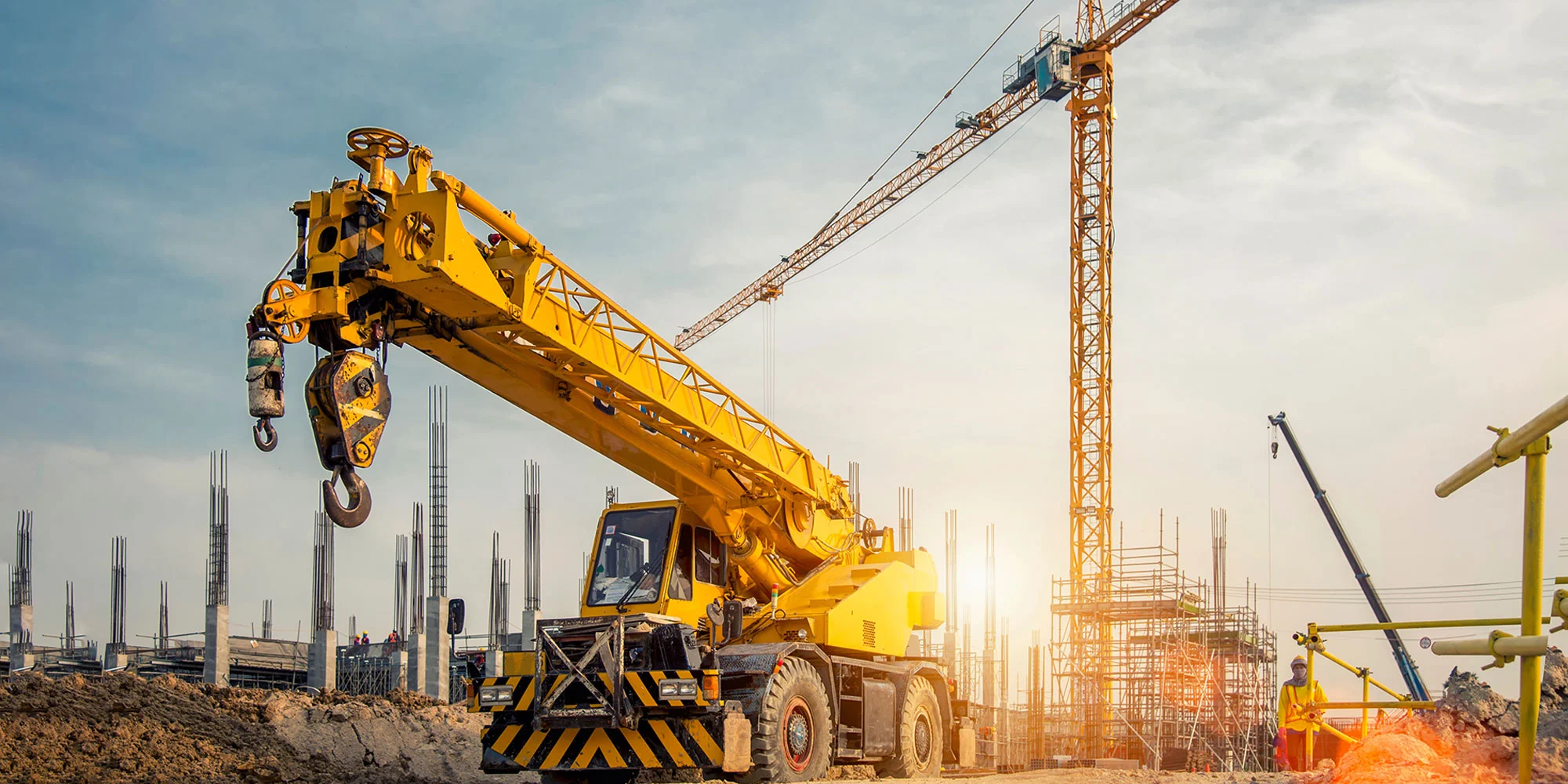Equipment Rental Company in Tuscaloosa AL: Your Relied On Resource for Equipment
Equipment Rental Company in Tuscaloosa AL: Your Relied On Resource for Equipment
Blog Article
Discovering the Financial Benefits of Leasing Building And Construction Tools Contrasted to Owning It Long-Term
The choice in between owning and renting building and construction devices is critical for financial monitoring in the market. Renting offers instant cost savings and operational versatility, allowing business to assign resources a lot more efficiently. On the other hand, ownership includes substantial long-term economic dedications, including upkeep and devaluation. As service providers evaluate these alternatives, the effect on money circulation, project timelines, and technology access becomes progressively significant. Recognizing these nuances is essential, specifically when thinking about exactly how they line up with particular project requirements and monetary approaches. What elements should be prioritized to make certain optimal decision-making in this complex landscape?

Cost Contrast: Leasing Vs. Owning
When evaluating the economic implications of renting out versus having building and construction tools, a detailed cost contrast is necessary for making educated choices. The selection between having and leasing can considerably impact a firm's lower line, and recognizing the associated expenses is critical.
Renting out building and construction devices normally entails lower in advance prices, permitting services to designate capital to other functional requirements. Rental arrangements often consist of versatile terms, enabling business to access progressed equipment without lasting commitments. This flexibility can be especially beneficial for short-term tasks or rising and fall work. However, rental expenses can collect in time, potentially exceeding the expense of ownership if tools is required for an extended duration.
On the other hand, having building and construction tools needs a considerable preliminary financial investment, along with recurring prices such as depreciation, financing, and insurance policy. While ownership can result in lasting financial savings, it also binds resources and may not give the very same level of adaptability as leasing. Furthermore, having tools requires a dedication to its utilization, which may not constantly align with job needs.
Ultimately, the decision to lease or possess ought to be based upon an extensive analysis of particular job demands, economic ability, and long-term tactical objectives.

Upkeep Expenditures and Duties
The selection in between having and renting out construction devices not only involves economic factors to consider but additionally encompasses ongoing maintenance expenditures and obligations. Possessing devices needs a significant commitment to its maintenance, that includes routine assessments, repairs, and potential upgrades. These responsibilities can rapidly collect, bring about unexpected costs that can stress a spending plan.
In comparison, when renting tools, upkeep is generally the responsibility of the rental firm. This arrangement allows specialists to prevent the economic worry connected with deterioration, in addition to the logistical obstacles of scheduling fixings. Rental agreements typically consist of stipulations for maintenance, suggesting that contractors can focus on finishing tasks rather than stressing over equipment condition.
Additionally, the diverse array of equipment offered for lease allows business to choose the current models with advanced modern technology, which can boost performance and efficiency - scissor lift rental in Tuscaloosa Al. By choosing services, businesses can avoid the long-term responsibility of tools devaluation and the associated upkeep headaches. Eventually, reviewing maintenance expenses and duties is visite site critical for making an informed choice concerning whether to lease or own building devices, substantially impacting overall task costs and functional efficiency

Devaluation Influence On Ownership

A substantial aspect to think about in the decision to possess construction tools is the impact of depreciation on total ownership costs. Devaluation represents the decline in value of the tools with time, affected by factors such as usage, deterioration, and improvements in technology. As equipment ages, its market worth diminishes, which can significantly affect the owner's monetary placement when it comes time to trade the equipment or market.
For building companies, this devaluation can equate to significant losses if the equipment is not made use of to its greatest potential or if it lapses. Proprietors must make up devaluation in their monetary projections, which can result in higher total prices contrasted to renting. Furthermore, the tax implications of depreciation can be intricate; while it may provide some tax obligation benefits, these are often offset by the reality of lowered resale worth.
Inevitably, the problem of depreciation emphasizes the relevance of recognizing the long-lasting economic dedication involved in possessing construction equipment. Business have to carefully examine just how often they will certainly make use of the equipment and the prospective economic influence of depreciation to make an enlightened decision about possession versus renting.
Monetary Adaptability of Leasing
Leasing construction tools supplies considerable financial flexibility, enabling business to designate sources much more effectively. This versatility is particularly essential in a market defined by varying task needs and varying workloads. By deciding to rent, organizations can stay clear of the significant capital outlay needed for acquiring tools, protecting capital for various other functional demands.
Furthermore, renting out tools enables firms to tailor their equipment selections to particular task requirements without the lasting commitment connected with possession. This suggests that organizations can easily scale their tools supply up or down based on expected and current project needs. Consequently, this flexibility minimizes the threat of over-investment in machinery that may end up being underutilized or obsolete with time.
An additional monetary benefit of renting out is the possibility for tax obligation benefits. Rental settlements are typically considered general expenses, permitting for immediate tax reductions, unlike devaluation on owned and operated equipment, which is topped a number of years. scissor lift rental in Tuscaloosa Al. This instant cost recognition can additionally enhance a firm's cash placement
Long-Term Task Factors To Consider
When reviewing the lasting requirements of a building and construction service, the decision between leasing and owning equipment comes to be a lot more intricate. For jobs with extensive timelines, acquiring tools may appear advantageous due to the capacity for reduced general costs.
The building and construction industry is evolving rapidly, with brand-new equipment offering improved effectiveness and safety attributes. This adaptability is particularly valuable for organizations that deal with diverse tasks needing different kinds of devices.
In addition, financial security plays an important duty. types of lifting equipment in construction Owning devices commonly requires considerable capital financial investment and devaluation problems, while leasing enables more predictable budgeting and capital. Inevitably, the option in between renting and having ought to be aligned with the strategic goals of the construction service, considering both anticipated and present job needs.
Final Thought
In final thought, renting building devices uses significant economic advantages over lasting possession. Ultimately, the choice to rent rather than own aligns with the vibrant nature of building jobs, enabling for adaptability and access to the most current tools without the financial worries linked with ownership.
As equipment ages, its market worth decreases, which can significantly affect the owner's financial placement when it comes time to trade the equipment or offer.
Renting out building and construction equipment uses considerable economic versatility, allowing firms to allot resources much more efficiently.In addition, leasing devices makes it possible for firms to tailor their equipment options to particular project requirements without the lasting dedication connected with ownership.In final thought, renting out visit the site construction tools provides significant monetary advantages over long-term ownership. Inevitably, the decision to rent instead than own aligns with the dynamic nature of building projects, allowing for adaptability and access to the most current devices without the monetary concerns connected with ownership.
Report this page